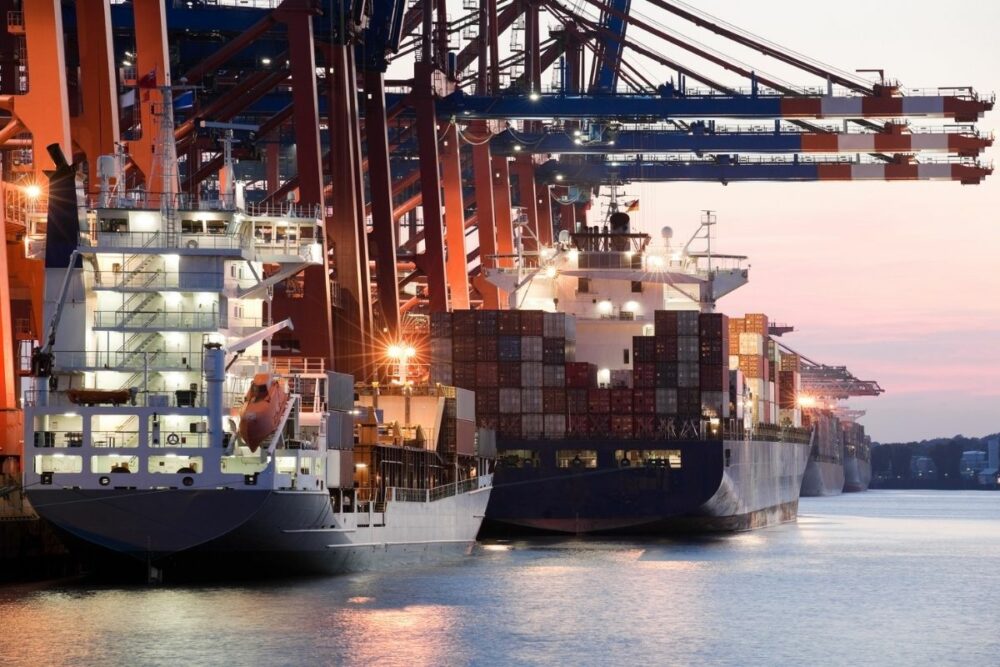How Much Does a Cargo Ship Weigh: Essential Insights
When it comes to the world of cargo shipping, one crucial question often arises: "How much does a cargo ship weigh?" This seemingly simple query, however, encompasses a wealth of information and considerations. In this article, we'll delve into the intricacies of cargo ship weight, its importance, factors affecting it, methods of measurement, and how it may change over time.
1. Understanding Cargo Ship Weight

Understanding Cargo Ship Weight
Cargo ship weight, often referred to as the ship's displacement, is a fundamental aspect of maritime transportation. It plays a pivotal role in ensuring safe and efficient cargo transport across the world's oceans. A cargo ship's weight encompasses not only the ship's structure but also its cargo, fuel, crew, and other equipment on board.
2. Importance of Knowing Cargo Ship Weight

Importance of Knowing Cargo Ship Weight
Knowing the weight of a cargo ship is essential for various reasons:
Safety: Ensuring that a cargo ship doesn't exceed its weight limits is crucial to prevent accidents like capsizing or structural damage.
Navigation: Ship weight affects a vessel's draft, which in turn influences its ability to navigate through different waterways.
Port Operations: Ports have weight restrictions for ships to prevent damage to their infrastructure.
Fuel Efficiency: A ship's weight impacts its fuel consumption, affecting operational costs and environmental considerations.
3. Factors Affecting Cargo Ship Weight
Several factors contribute to a cargo ship's weight, including:
Cargo Load: The weight of the cargo being transported is a significant factor.
Fuel: The quantity of fuel aboard the ship for propulsion.
Ballast: Water or other materials added or removed to maintain stability.
Crew and Equipment: The weight of the crew, machinery, and other equipment on board.
Structural Weight: The inherent weight of the ship's hull, superstructure, and components.
4. Measuring Cargo Ship Weight
Cargo ship weight can be determined through various methods:
Displacement Method: This traditional method calculates weight based on the amount of water displaced by the ship when it's fully loaded.
Archimedes' Principle: Similar to the displacement method, it calculates weight by measuring water displacement.
Weighbridges: Specialized scales at ports can weigh the entire ship, including its cargo.
Load Cells: Sensors placed throughout the ship can measure the distribution of weight.
5. Comparing Cargo Ship Weights
Let's compare the weights of different types of cargo ships:
|
Ship Type |
Average Weight (in tons) |
|
Container Ship |
100,000 - 200,000 |
|
Bulk Carrier |
50,000 - 200,000 |
|
Oil Tanker |
100,000 - 500,000 |
|
Cruise Ship |
80,000 - 220,000 |
|
Ro-Ro Ship |
25,000 - 65,000 |
These figures provide a general idea of the weight ranges for various types of cargo ships.
6. Changing Cargo Ship Weight Over Time
A cargo ship's weight isn't static; it can change over time due to several factors:
Cargo Loading and Unloading: As cargo is loaded and unloaded at ports, the ship's weight fluctuates.
Fuel Consumption: As fuel is consumed during the journey, the ship becomes lighter.
Ballasting: Ships adjust ballast to maintain stability, affecting weight.
Maintenance: Repairs and maintenance can add weight in the form of equipment or materials.
Understanding how much a cargo ship weighs is essential for the safety, efficiency, and economic viability of maritime transportation. Cargo ship weight is a dynamic factor influenced by various elements, and precise measurement is critical for ensuring the smooth operation of these essential vessels. Whether you're involved in the shipping industry or simply curious about the world of cargo ships, knowing the weight of these massive vessels provides valuable insights into their fascinating world.